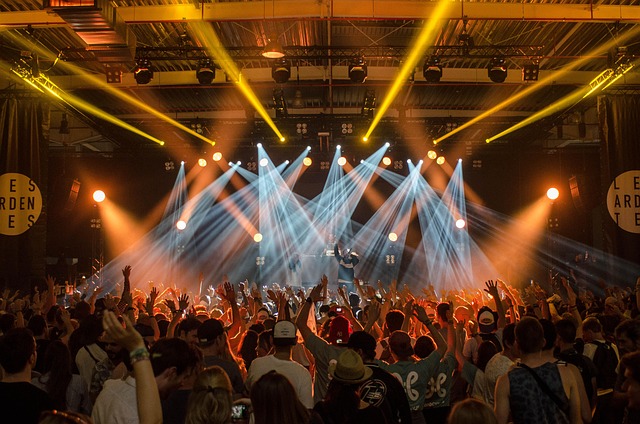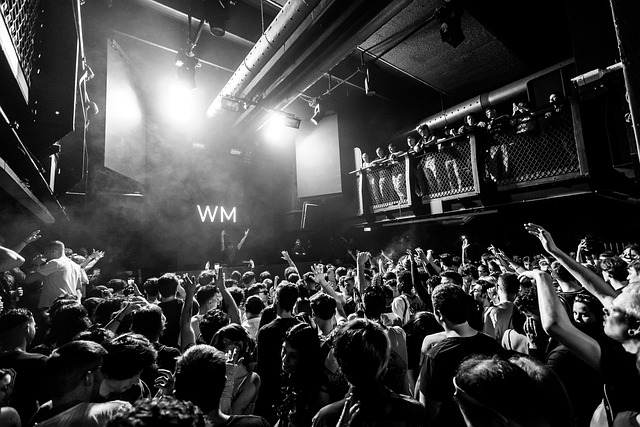Event planning for local businesses thrives on understanding and engaging their target audience. Through market research using demographics, interests, and past engagement data, organizers can design workshops, networking sessions, and cultural events that resonate deeply with community members. This strategy leverages social media insights, tailored content creation, and strategic marketing to attract and retain attendees, enhancing the business's reputation as a community-focused entity in today's digital age. Customized events foster loyalty, build brand awareness, and drive engagement by aligning with attendees' passions.
Social media events, when skillfully managed, can be a game-changer for local businesses. This article guides you through the comprehensive process of event planning for local businesses on social media. From understanding your audience and effective promotion strategies to seamless logistics and measuring success, we cover it all. Discover how tailored events, engaging content, and data-driven insights can help elevate your brand and connect with customers in today’s digital landscape.
- Understanding Your Audience: Tailoring Events for Local Businesses
- – Market research and audience analysis
- – Identifying target demographics and interests
- – Customizing events to engage local customers
Understanding Your Audience: Tailoring Events for Local Businesses

Understanding your audience is a cornerstone of successful event planning, especially for local businesses looking to make a mark in their community. By delving into demographics, interests, and past engagement, organizers can tailor events that resonate deeply with attendees. This involves creating a vibrant atmosphere that reflects the values and needs of the local community, fostering connections between businesses and their target market.
For event planning for local businesses, this might translate to hosting workshops relevant to industry trends, networking sessions facilitating meaningful interactions, or cultural celebrations showcasing the diversity within the region. Such personalized events not only attract but also retain audience interest, building a loyal following and enhancing the business’s reputation as a community-focused entity in today’s digital era.
– Market research and audience analysis

Market research is a cornerstone in event planning, especially for local businesses aiming to make their social media events impactful. By understanding the target audience, business owners can create experiences that resonate deeply with participants. This involves analyzing demographic data, interests, and behaviors of potential attendees. Tools like surveys, focus groups, and analytics platforms provide valuable insights into what appeals to the local community. For instance, a local café hosting a coffee-themed event could discover through research that millennials in the area have a strong interest in specialty coffee and sustainable practices.
Audience analysis allows event organizers to tailor content, themes, and activities accordingly. It ensures that the social media event aligns with the preferences and needs of the attendees, fostering higher engagement and satisfaction. This strategic approach not only attracts a larger crowd but also encourages positive word-of-mouth, which is invaluable for local businesses aiming to build their brand within the community through event planning.
– Identifying target demographics and interests

When planning social media events, understanding your target audience is paramount for event planning for local businesses. Identifying the demographics and interests of potential attendees allows for tailored content creation and marketing strategies. Local businesses can leverage social media insights to pinpoint age groups, genders, locations, and online behaviors of their ideal customers. This data-driven approach ensures that event promotions reach the right people with relevant offerings.
For instance, a local café might target young adults aged 25-35 with an interest in food trends and sustainable living. Crafting event posts and ads that resonate with these interests will foster engagement and attendance. By aligning the event with their target demographic’s passions, businesses can maximize participation and create memorable experiences that cater to their audience’s preferences.
– Customizing events to engage local customers

In the realm of event planning, tailoring experiences to engage local customers is a game-changer for local businesses. Customizing events means going beyond the generic and creating unique, relevant experiences that resonate with the specific interests and needs of the target audience. For instance, a local coffee shop could host a “Coffee Culture” event featuring demonstrations on brewing techniques, pairing sessions, and discussions around sustainable sourcing – all activities designed to captivate their caffeine-loving community.
This strategic approach fosters a sense of belonging and loyalty among attendees, transforming events into powerful marketing tools. By aligning events with the brand identity and values of local businesses, while also addressing the interests of their customers, event planners can create memorable experiences that drive engagement and support within the community – a key aspect of successful Event Planning for Local Businesses in today’s competitive market.
Social media events, when managed with a deep understanding of local business audiences, can be transformative. By leveraging market research and audience analysis, event planners can tailor experiences that resonate deeply with specific demographics and interests. This targeted approach not only drives engagement but also fosters stronger connections between brands and their local customers. For businesses looking to elevate their presence through Event Planning for Local Businesses, mastering this strategy is key to creating memorable and impactful events.



